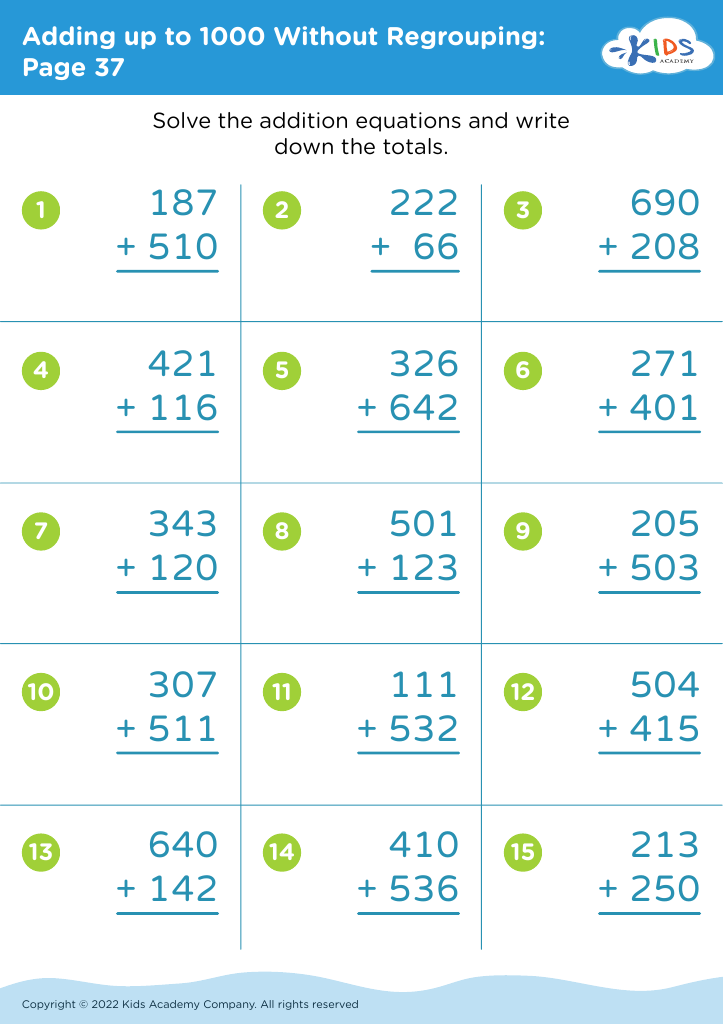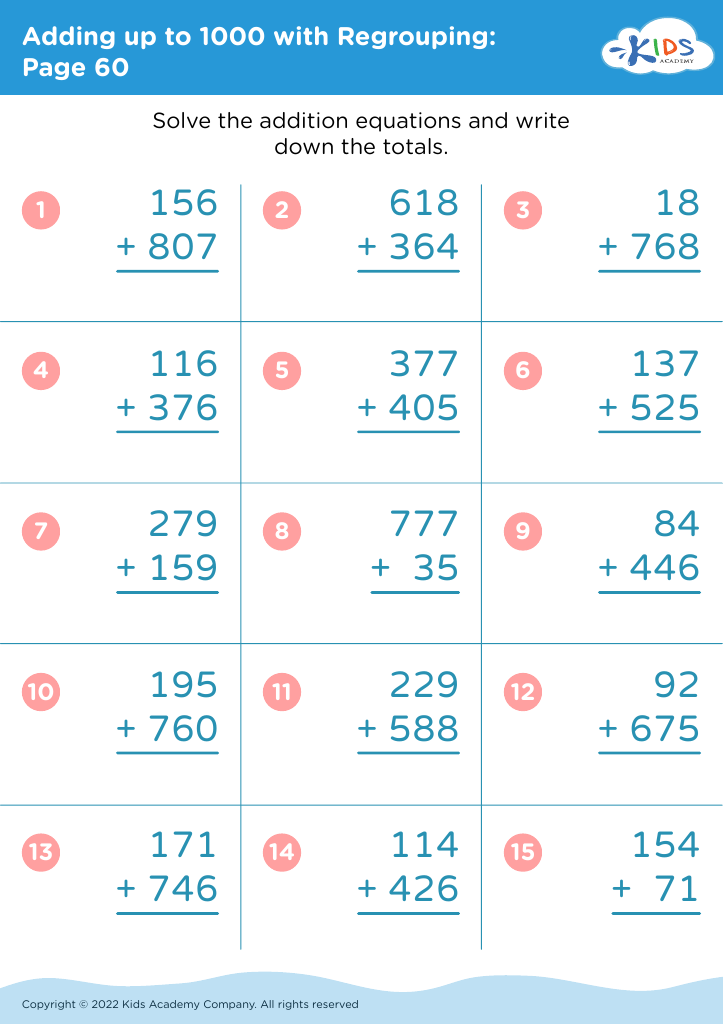Following instructions Adding up to 1000 Worksheets for 7-Year-Olds
5 filtered results
-
From - To
Explore our engaging "Following Instructions: Adding Up to 1000 Worksheets for 7-Year-Olds," designed to enhance your child’s math skills and boost their ability to follow directions. These worksheets combine numerical practice with fun activities, helping kids master addition up to 1000 while improving their understanding of instructions. Each exercise encourages critical thinking as students solve problems by carefully interpreting the directions. Ideal for home or classroom use, our resources are aligned with educational standards and aimed at fostering independence and confidence in young learners. Start your child's journey to becoming a confident mathematician today with these interactive and educational worksheets!
Teaching 7-year-olds how to follow instructions for adding up to 1000 is crucial for several reasons. First, it fosters essential math skills that are foundational for future learning. At this age, children are developing their cognitive abilities, and understanding addition helps them grasp more complex concepts in mathematics later on, such as subtraction, multiplication, and division.
Furthermore, learning to follow multi-step instructions not only enhances their mathematical skills but also improves their listening and comprehension abilities. These skills are transferable and impact daily life, such as understanding directions or procedures in school and beyond.
In addition, reinforcing the habit of concentrating on details establishes good study practices, increases focus, and supports self-discipline. This practice encourages perseverance when faced with challenges, as children learn to break tasks into manageable parts and adhere to the steps necessary for successful completion.
Lastly, helping children with this skill provides an opportunity for parents and teachers to bond over academic work. Encouraging interaction, collaboration, and problem-solving is beneficial in building a child’s confidence and enthusiasm for learning. Overall, prioritizing these skills contributes to a well-rounded education that benefits children's future academic endeavors.






















